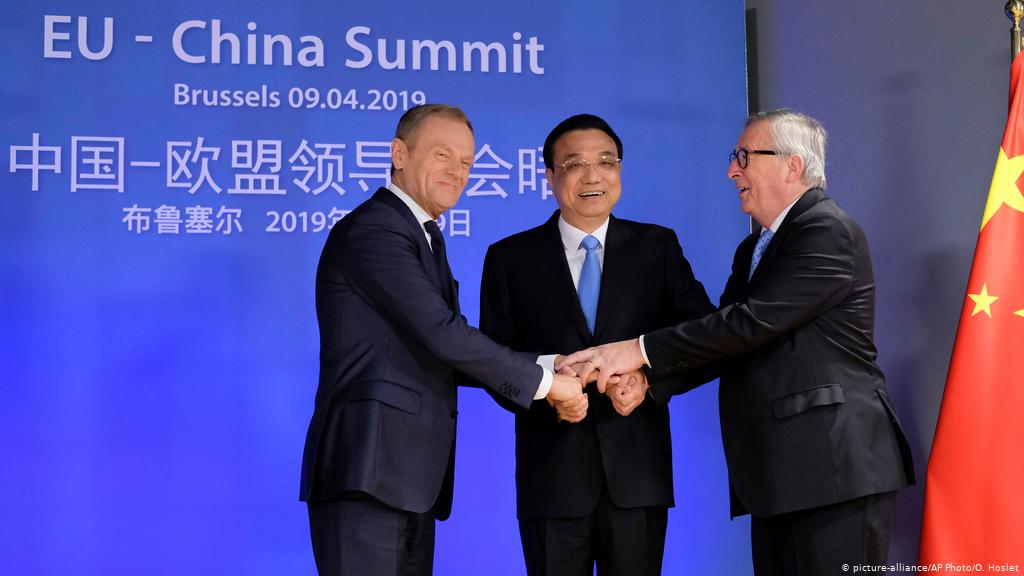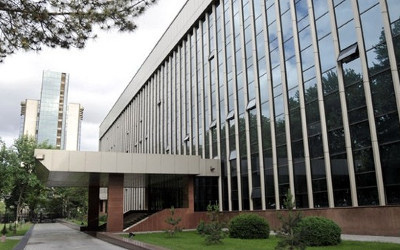EurActiv (10 April 2019)
Europe is a “technology-free zone” when it comes to agriculture and it will pay the price for that, US Agriculture Secretary Sonny Perdue has said, criticising the EU for ignoring science on new technologies in farming.
Speaking at the Committee on Appropriations of the House of Representatives in Washington on 9 April, Perdue said:
“What we’re seeing in the EU along this route, I call it the ‘technology-free zone.’ […] I think again they will pay the price for this in the future,” Perdue said.
The US official made this statement following a question about the future of the world’s most commonly used weedkiller, Bayer’s Roundup, which contains the controversial chemical substance glyphosate.
Roundup was initially produced by giant agri-industry Monsanto, but the company was bought by Bayer last year for €55.8 billion.
Perdue was asked what the implications on US agriculture would be if Roundup was taken off the market due to the ongoing court cases against it.
“It would be literally devastating to productivity capacity,” he warned.
At the EU level, glyphosate’s license was renewed in November 2017 with the aim to phase it out within five years. The European Commission insisted that it had followed a science-based approach while some member states such as France voted against its re-authorisation.
The UN’s Food and Agriculture Organisation (FAO) and the World Health Organisation (WHO) have approved the chemical, saying it is “unlikely to pose a carcinogenic risk to humans from exposure through the diet”. The same opinion was shared by the European Food Safety Authority (EFSA) as well as the European Chemicals Agency (ECHA).
However, this is in contrast to an assessment by IARC (International Agency for Research on Cancer), which concluded in 2015 that the herbicide solution was “probably carcinogenic to humans”. This has been the main argument of environmentalists such as Greenpeace, who demand a total glyphosate ban.
Bayer has received more than 11,200 Roundup lawsuits so far and the plaintiffs claim the product has caused cancer. Two cases have already resulted in convictions and compensations totalling thousands of euros.
“I’m afraid that while groups that oppose these types of uses have not been able to win on the science side, they’ve chosen the litigation route,” the US minister said, adding that he hoped the judges will make better decisions in the appeal process.
New plant breeding techniques
This is not the first time that Perdue has criticised Europe’s stance toward new technologies.
In August 2018, he called a ruling by the European Court of Justice on new plant-breeding techniques (NPBTs) a ‘setback’ and not based on science.
The ECJ ruled on 25 July that organisms obtained by mutagenesis plant breeding technique, or gene editing, are GMOs and should, in principle, fall under the GMO Directive
The Court’s decision was hailed as a victory by NGOs, while the biotech industry described it as a severe blow to innovation in EU agriculture with long-term economic and environmental implications.
EU Health Commissioner Vytenis Andriukaitis has recently told EURACTIV.com in an interview that the next EU executive would need to come up with a new regulatory framework for these techniques, which are not linked to GMOs, according to him.
In September 2018, a study commissioned by pesticides industry CropLife International found that the lack of access to modern technologies combined with the fragile political landscape has put agriculture production in the EU under enormous pressure, at a time when other major farm markets in the world are growing.
“The USA, Brazil and China have seen drastic increases in agricultural productivity due to the adoption of new technologies, such as plant biotechnology and modern crop protection products,” the report noted.
No comments yet.
-
 EU ANNOUNCES 'BREAKTHROUGH' ON TRADE WITH CHINA
Europe - EU
10.04.2019
EU ANNOUNCES 'BREAKTHROUGH' ON TRADE WITH CHINA
Europe - EU
10.04.2019
-
 IRAQ VIEWS SIEMENS' PLAN FOR ITS POWER SECTOR FAVOURABLY
Iraq
10.04.2019
IRAQ VIEWS SIEMENS' PLAN FOR ITS POWER SECTOR FAVOURABLY
Iraq
10.04.2019
-
 GEORGIAN OFFICIALS PAY TRIBUTE TO APRIL 9 VICTIMS
The Caucasus and Turkish-Armenian Relations
10.04.2019
GEORGIAN OFFICIALS PAY TRIBUTE TO APRIL 9 VICTIMS
The Caucasus and Turkish-Armenian Relations
10.04.2019
-
 UZBEKISTAN, MONGOLIA TO HOLD POLITICAL CONSULTATIONS IN TASHKENT
Central Asia
10.04.2019
UZBEKISTAN, MONGOLIA TO HOLD POLITICAL CONSULTATIONS IN TASHKENT
Central Asia
10.04.2019
-
 KAZAKHSTAN TO HOLD EARLY PRESIDENTIAL ELECTIONS IN JUNE
Central Asia
10.04.2019
KAZAKHSTAN TO HOLD EARLY PRESIDENTIAL ELECTIONS IN JUNE
Central Asia
10.04.2019
-
19.04.2024
Türk-Ermeni İlişkileri Üzerine Ömer Engin Lütem Konferansları 2023 -
11.04.2023
Türk-Ermeni İlişkileri Üzerine Ömer Engin Lütem Konferansları 2022 -
27.03.2023
RADİKAL ERMENİ UNSURLARCA GERÇEKLEŞTİRİLEN MEZALİMLER VE VANDALİZM -
17.03.2023
PATRIOTISM PERVERTED -
23.02.2023
MEN ARE LIKE THAT -
03.02.2023
BAKÜ-TİFLİS-CEYHAN BORU HATTININ YAŞANAN TARİHİ -
16.12.2022
INTERNATIONAL SCHOLARS ON THE EVENTS OF 1915 -
07.12.2022
FAKE PHOTOS AND THE ARMENIAN PROPAGANDA -
07.12.2022
ERMENİ PROPAGANDASI VE SAHTE RESİMLER -
30.03.2022
Türk-Ermeni İlişkileri Üzerine Ömer Engin Lütem Konferansları 2021 -
01.01.2022
A Letter From Japan - Strategically Mum: The Silence of the Armenians -
01.01.2022
Japonya'dan Bir Mektup - Stratejik Suskunluk: Ermenilerin Sessizliği -
11.02.2021
Türk-Ermeni Uyuşmazlığı Üzerine Ömer Engin Lütem Konferansları 2020 -
03.06.2020
Anastas Mikoyan: Confessions of an Armenian Bolshevik -
08.04.2020
Sovyet Sonrası Ukrayna’da Devlet, Toplum ve Siyaset - Değişen Dinamikler, Dönüşen Kimlikler -
18.03.2020
Türk-Ermeni Uyuşmazlığı Üzerine Ömer Engin Lütem Konferansları 2019 -
08.03.2019
Türk-Ermeni Uyuşmazlığı Üzerine Ömer Engin Lütem Konferansları 2018 -
12.06.2018
Ermeni Sorunuyla İlgili İngiliz Belgeleri (1912-1923) - British Documents on Armenian Question (1912-1923) -
02.12.2016
Turkish-Russian Academics: A Historical Study on the Caucasus -
01.07.2016
Gürcistan'daki Müslüman Topluluklar: Azınlık Hakları, Kimlik, Siyaset -
10.03.2016
Armenian Diaspora: Diaspora, State and the Imagination of the Republic of Armenia -
24.01.2016
Ermeni Sorunu Temel Bilgi ve Belgeler (2. Baskı)
-
AVİM Conference Hall 24.01.2023
CONFERENCE TITLED “HUNGARY’S PERSPECTIVES ON THE TURKIC WORLD"









